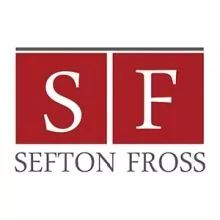Introduction
The world in currently experiencing the scourge of the Covid-19 pandemic which so far can only be kept at bay by the imposition of social distancing rules. naturally, the manufacture of Personal Protective Equipment and dispatch areas where they are needed is a priority to the world at large. To curtail the pandemic and save lives, it is expected that there will be an increase in the local manufacture as well as the importation of relevant materials, especially drugs and foods supplements to combat the pandemic. This article is provides guidance to manufacturers and importers of drug and food products on the registration of their products with the National Agency for Food and Drug Administration and Control (NAFDAC), the primary authority responsible for regulating and controlling their importation, exportation and manufacture.
Registration of regulated products
Under Nigerian law, no processed food, drug, drug product, cosmetic, medical device or water can be manufactured, imported, exported, advertised, sold or distributed in Nigeria unless it has been registered with NAFDAC.
NAFDAC was established pursuant to the provisions of the NAFDAC Act1 and is responsible for regulating and controlling2 the importation, exportation, manufacture, advertisement, distribution, sale and use of processed foods, beverages, and medicines for human or animal use, cosmetics, medical devices, detergents, packaged/bottled water and chemicals (together "regulated products").3
There are certain requirements which must be fulfilled before a regulated product can attain a registered status in Nigeria. These requirements are determined by whether the regulated product is locally made or imported. It must be noted that a company producing different products must register each of them separately. Registering a regulated product with NAFDAC would require the following:
- Factory inspection by the closest zonal office of NAFDAC.
- Submission of three (3) samples of the products to NAFDAC for analysis.
- Completion and submission of a registration form to NAFDAC in respect of each product
- Application to NAFDAC to register the products. The application should (i) be addressed to the Director (Registration and Regulatory Affairs) NAFDAC; (ii) state the purpose of the application; and (iii) give details of each product name (general name), brand name, and the name of the manufacturer.
Essentially, the registration process involves:
(a). Submission of the application;
(b). Verification of accompanying documentation;
(c). Facility inspection/sampling;
(d). Laboratory analysis
(e). Final vetting ;
(f). Approval and issuing of Certificate of registration.
Under the NADFAC Guidelines, the total number days required to complete the registration procedure is 90 days for food and 120 days for drugs, However, it may be longer in practice.
It must be noted that registration of a product does not automatically confer advertising permit and a separate approval by NAFDAC is required if the product is to be advertised.
Registration requirements for locally made products
It is important to mention that NAFDAC has 7 categories of items classified as regulated products and the requirement for registration of each product is categorized into two broad groups: food and drug. The documents to be submitted to NAFDAC for the registration of locally made products will therefore be dependent on the category under which such product falls. The requirements for the registration of food and drug products are somewhat similar but with slight differences. Below are the respective registration requirements for food product and drug product.
Registration requirements for a food product
(a). Certificate of incorporation of the applicant issued by the Corporate Affairs Commission (CAC);
(b). The certificate of inspection/recognition issued by NAFDAC upon inspection of factory;
(d). Trademark approval for the brand name by Federal Ministry of Commerce (where applicable); and
(e). Application form forwarded to the Director General of NAFDAC stating the name of manufacturer, brand name, and product or products (as the case may be).
Registration requirements for a drug product
(a). Application letter for registration of the product.
(b). Certificate of incorporation of the applicant issued by the Corporate Affairs Commission (CAC);
(c). Evidence of payment to NAFDAC
(d). A contract manufacturing agreement (where applicable)
(e). Evidence of pre-production inspection/certificate of recognition;
(f). Copy of valid Annual License to practice for the Superintendent Pharmacist issued by Pharmacists Council of Nigeria;
(g). Copy of valid Premises Retention License for the facility;
(h). Evidence of Pharmaceutical Manufacturers Group of Manufacturers Association of Nigeria (PMG-MAN) membership;
(i). Trademark approval for the brand name by Federal Ministry of Commerce (Trademark Class 5 for Drugs);
(j). A signed and endorsed certificate of a pharmaceutical product;
(k). Three samples of the product for quality analysis and inspection;
(l). Evidence of Membership of the State's Traditional Medicines Board (Herbal Medicines);
(m). Comprehensive Certificate of analysis of the batch of product submitted for registration from the manufacturer stating name and signature of the analyst;
(n). Technical Document (Herbal Medicines); and
(o). Completed NAFDAC application form.
Registration of foreign regulated products
Under Nigerian law, every foreign company having the intention of carrying on business in Nigeria, shall take all steps necessary to obtain incorporation as a separate entity in Nigeria for that purpose, thus, the manufacturer of a foreign regulated product seeking to establish presence in Nigeria through importation or distribution of its imported food products must applying through a Nigerian entity in whose name the registration of the product will be issued and who will be responsible for ensuring compliance with all laws and regulations associated with the product(s). This is typically achieved through any of the following methods:
(a). Incorporation of a local subsidiary which would apply for the registration of the products with NAFDAC; or
(b). Appointing an existing Nigerian company (such as their local distributors) as agents for the purpose of product registration with NAFDAC.
In order to import drug products into Nigeria, an importer must submit a completed online application form accompanied by the documents listed below:
(a). Power of attorney instrument or a contract manufacturing agreement duly notarized in the country of manufacture.
(b). Certificate of incorporation or business registration with CAC
(c). Manufacturing license or certificate of free sale
(d). A manufacturer's certificate issued by the relevant health/regulatory agency in the country of manufacture.
(e). A Certificate of Pharmaceutical Product (COPP) in the World Health Organisation approved format issued by the relevant health/regulatory agency in the country of manufacture evidencing , that the sale of the product does not constitute a contravention of the drug laws of that country and authenticated by the Nigerian embassy or High Commission in that country.
(f). Current Good Manufacturing Practice (GMP) of the manufacturing facility issued by the relevant health/regulatory agency and authenticated by the Nigerian embassy or High Commission in that country.
(g). Evidence of Registration of Brand Name with Trademark Registry in the Ministry of Industry, Trade and Investment.
(h). Copy of valid Annual License to practice for the Superintendent Pharmacist issued by Pharmacists Council of Nigeria
(i). Evidence of valid Premises Retention License for the facility
(j). Comprehensive Certificate of Analysis for product(s)
(k). Certificate of analysis presented on the letter head of the quality control laboratory where the sample was tested/evaluated.
(l). Label or artwork of the product.
(m). Letter of invitation for GMP inspection
In the case of importation of food products, an importer must submit an application accompanied with below listed documents:
(a). Evidence of trademarks registration from the Federal ministry of Commerce in Nigeria.
(b). Certificate of incorporation or business registration with CAC
(c). A Power of Attorney from the manufacturer or a contract manufacturing agreement (where applicable), which authorizes the Nigerian subsidiary/distributor to be the representative of the manufacturer in Nigeria.
(d). A certificate of manufacture or free sale issued by a competent health authority, authenticated by the Nigerian Embassy or High Commission in the country of origin.
(e). A comprehensive certificate of product analysis
(f). A letter of invitation for the inspection of factory to be submitted by the applicant and shall state the full location address of the manufacturer, name of contact person, E-mail address, current phone and fax numbers.
A successful applicant (whether importation of food or drugs) will be issued with a Certificate of Registration with a validity period of five (5) years.
In addition to the foregoing, NAFDAC also has a guideline for agents which provides that agents shall take necessary steps to ensure that regulated products intended for the Nigerian market are registered before consignments of such products are imported into the country. Also, the agent must also obtain a written authorization specifying the quantity of the unregistered products to be imported for the purpose of submission as samples for registration.
On arrival of the imported samples, agent is required to present the following to NAFDAC inspectors at the ports:
(a). Authorization to import samples of the unregistered product.
(b). Bank draft for the prescribed port inspection fees payable to NAFDAC.
(c). Properly completed Customs Bill of Entry.
(d). Certificate of Analysis of the product issued by the manufacturer.
(e). Certificate of Manufacture and Free Sale issued by a Government Authority empowered by law in the country of origin to exercise regulatory control over the product authenticated by the Nigerian Embassy in the country of manufacture.
(f). Power of Attorney, notarized, issued by the manufacturer to the Nigerian local agent.
In the event of any violation, the consignment of the unregistered product would be cleared from the ports to a bonded warehouse at the expense of the importer. Thereafter, the importer is prosecuted, and the products forfeited to the Government together with any assets or property obtained or derived directly or indirectly from the commission of the offence.
Emergency approvals for Covid 19 response
In the wake of the Covid-19 pandemic, NAFDAC issued a circular in which it promised that expedited/emergency approvals will be granted to products necessary and critical in response to the pandemic. Also, applications for registration of products deemed to have urgent public health impact will be processed and given conditional and limited approvals. The agency has been operational with restricted access and requests that stakeholders engage relevant directorates via email and other electronic platforms. With the proposed easing of the lockdown starting from May 4, we expect NAFDAC will become even more tuned to meeting the urgent needs of importers of products considered essential to the fight against the pandemic.
Footnotes
1. Section 1 Nation Agency for Food and Drug Administration and Control Act Chapter N1 Laws of the Federation of Nigeria 2004
2. Section 5 NAFDAC Act
3. Section 31 NAFDAC Act
The content of this article is intended to provide a general guide to the subject matter. Specialist advice should be sought about your specific circumstances.


